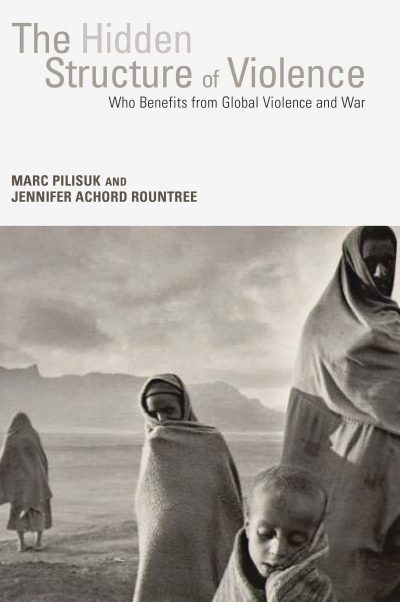The Hidden Structure of Violence: Who Benefits from Global Violence and War

Acts of violence assume many forms: they may travel by the arc of a guided missile or in the language of an economic policy decision that contaminates drinking water, and they may leave behind a smoldering village or a starved child. The all-pervasive occurrence of violence makes it seem like an unavoidable, and ultimately incomprehensible, aspect of the human world, particularly in a modern era. But, in this detailed and expansive book, Marc Pilisuk and Jennifer Rountree demonstrate otherwise. Widespread violence, they argue, is in fact an expression of the underlying social order, and whether it is carried out by military forces or by patterns of investment, the aim is to strengthen that order for the benefit of the powerful.
The Hidden Structure of Violence marshals vast amounts of evidence to examine the costs of direct violence, including military preparedness and the social reverberations of war, alongside the costs of structural violence, expressed as poverty and chronic illness. It also documents the relatively small number of people and corporations responsible for facilitating the violent status quo, whether by setting the range of permissible discussion or benefiting directly as financiers and manufacturers. The result is a stunning indictment of our violent world and a powerful critique of the ways through which violence is reproduced on a daily basis, whether at the highest levels of the state or in the deepest recesses of the mind.
Because of its inter-disciplinary approach, The Hidden Structure of Violence will be valuable for scholars and students in a range of fields, but especially psychology, macro-economics, sociology, international relations, history, journalism, peace studies, military science, community development, and social change.
Bibliography for Hidden Structure of Violence
An encyclopedic and yet highly focused analysis of the causes and consequences of violence and wars … This is a sober book that nonetheless leaves us with hope for future generations.
One of the most comprehensive—and programmatic—discussions of the sources and nature of global violence in years.
This is a rare book: It speaks the truth about the causes of war, and cuts through the veil of theories that mystify and obscure rather than explain the causes … a scholarly work, fully referenced and documented, yet accessible to the general public … a forthright and hard-hitting critique of the power elite’s control of government, foreign policy, and the media.
There are painful truths here for Americans about the role our government plays in perpetuating global violence—but some readers will be inspired to follow the authors’ advice on what can be done about it.
The authors have cast their net over the threats to world peace and ecological balance, pulling in not only fish but monsters of the deep. After painting a picture gloomier than any canvas by Bosch or Goya, they offer a glimmer of hope for a planet suffering from a life-threatening disease. Indeed, no recent book presents today’s pathologies so clearly nor provides potential remedies with such brilliant articulation.
This important book is a tour de force of erudition and scholarship, lucid exposition and organization, cogent reasoning, psychological depth, and compassionate motivation. It is written in clear, accessible language and a warm, humane voice. Each proposition is supported by well-documented evidence, including historical case studies. Through ‘uncovering a destructive system,’ the authors aspire to inform, inspire, and empower readers to take part in the just transformation of this violence-ravaged world. In other words, this book’s purpose is to empower activists for peace, human rights, and ecological sustainability. It is a guidebook to the intricate, highly organized networks that dominate and are destroying so much of the world in which we live.
In a few words, it can be said that the book tells it like it is—it describes the vast governmental-industrial-legislative complex that controls our lives via war and violence. This is not conspiracy theory any longer—it is rooted in fact and record. The authors cite names, organizations, places, and dates that not only promote war, but also benefit from it financially. The world is the victim! This is a must read and I call it to your attention.

